IRPS Distinguished Members
IRPS Statutes: Art. V, Sec. 4:
Distinguished Members (DM): shall be individuals whose contributions to the regulatory peptide field and/or to the Society are judged significant according to criteria established by the Council. Distinguished members shall be nominated by 10 members of the Society, and a letter of acceptance from the nominee to the Membership Committee is required. Nominations for DM can be approved by Council majority vote at any time. The DM will receive a diploma in recognition to his/her contribution to the field and/or the Society during the upcoming General Assembly of a given RegPep.
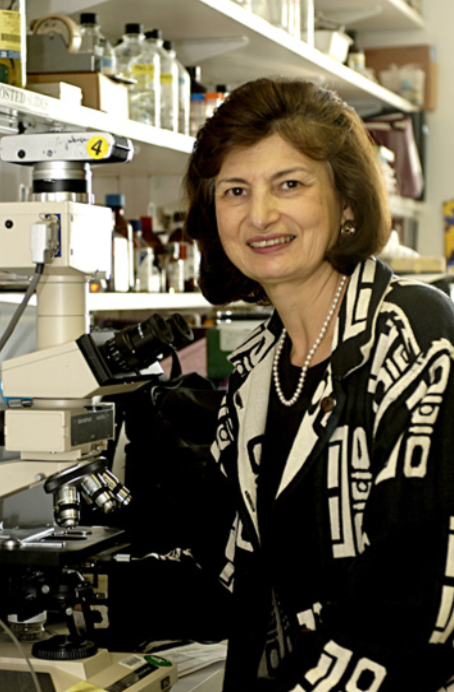
Greti Aguilera
show more
Dr. Greti Aguilera, received an M.D. degree from the University of Chile in 1968. She trained in Clinical Endocrinology, Department of Medicine, University of Chile, and in basic research on steroid biochemistry in the Department of Physiology and Biophysics. In 1975 she joined Dr. Kevin Catt’s laboratory at NICHD as an International Fogarty Fellow, in 1977 she was appointed as Visiting Scientist, and then as a Senior Researcher in 1984. Since 1989, she has served as Chief of the Section of Endocrine Physiology within the Program on Developmental Endocrinology and Genetics in NICHD. Research contributions include identification of factors responsible for regulation of adrenal glomerulosa responsiveness to angiotensin II; characterization of the relative role of corticotropin releasing hormone and vasopressin on the HPA axis adaptation during stress; characterization of the properties, signaling-transduction, and regulation of the receptors for these peptide hormones, and the identification of novel mechanisms for the transcriptional regulation of CRH. Current work in Dr. Aguilera’s laboratory focuses on the molecular mechanisms of positive and negative regulation of CRH transcription responsible for the rapid but transient responses to stress, the consequences of early life experiences and circadian and ultradian rhythms of glucocorticoid secretion on gene transcription, and the mechanisms determining pulsatile glucocorticoid secretion by the adrenal.
show less
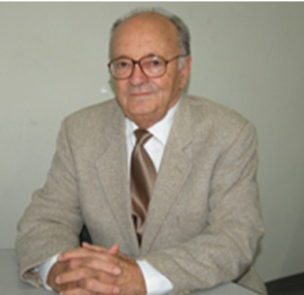
Jose Antunes-Rodrigues
show more
Professor Jose Antunes-Rodrigues is emeritus Professor at the University of Sao Paulo, Ribeirao Preto Medical School and has contributed to the teaching of medical undergraduate students since 1960. During these decades he has taught Physiology to more than 4500 medical students. His devotion to teaching was recognized by the medical students who dedicated several honors and awards to Professor Antunes. He has robust contributions on the role of CNS in the control of hydromineral balance. His research team demonstrated the role of oxytocin in the ANP secretion from the heart. He has trained more than 40 PhD students and supervised several (15) Post-Doc young investigators. He has more than 350 publications and 4500 citations. He is member of Brazilian Academy of Science and his significant contributions to the Science can be verified by the Awards he has received from Brazilian Ministry of Science and Technology (National Order of Scientific Merit).
show less

Sue Carter
show more
Professor C. Sue Carter is currently Director of the Kinsey Institute and Rudy, Professor of Biology at Indiana University, a position she accepted in 2014. Prior to her current position she held Professorships at the University of Illinois, Champaign-Urbana and the University of Illinois at Chicago, Department of Psychiatry, as well as the University of Maryland and the University of North Carolina. Dr. Carter is a neurobiologist, known for her research on the biology of social bonding and the development of the prairie vole as a model for studying the behavioral and physiological actions of peptide hormones. Research originated by Dr. Carter has shown that oxytocin is at the biological heart of positive emotions, including love. Oxytocin and its receptors can facilitate a sense of safety, which in turn allows social cognition, social bonding, social support, growth and restoration. The oxytocin system also plays a major role in early life and is epigenetically influenced by experience. The capacity of oxytocin to regulate the brain and behavior across the lifespan helps to explain the adaptive consequences of social bonds and attachments for emotional and physical health, especially in the face of fear and anxiety
show less
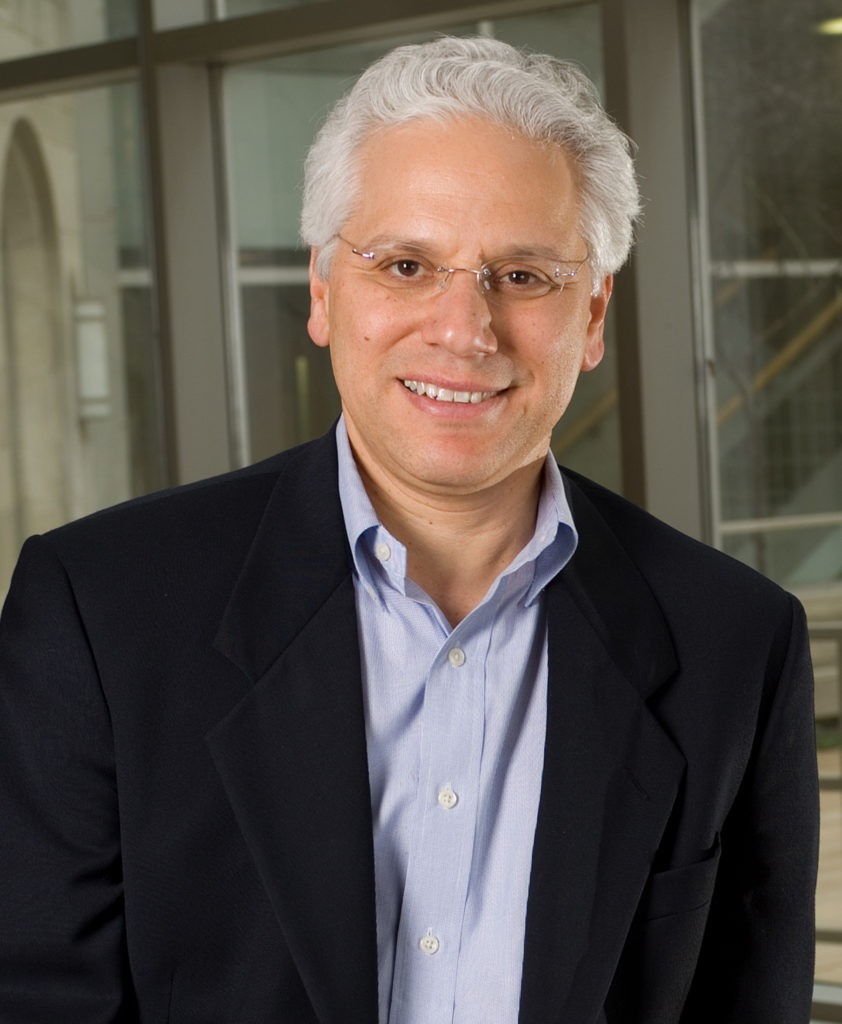
Richard DiMarchi
show more
Professor Richard D. DiMarchi is the Standiford H. Cox Professor of Chemistry and Linda & Jack Gill Chair in Biomolecular Sciences at Indiana University. He is a co-founder of Ambrx, Inc., and Marcadia Biotech. He is a scientific advisor to Ferring, Merck, Roche and three venture funds; 5AM and Twilight. He is a retired Group Vice President at Lilly & Company where he provided leadership in biotechnology, endocrine research and product development. Dr. DiMarchi and his colleagues have pioneered new approaches to peptide receptor ligand design incorporating dual receptor recognition for application to the treatment of metabolic disorders including diabetes
show less
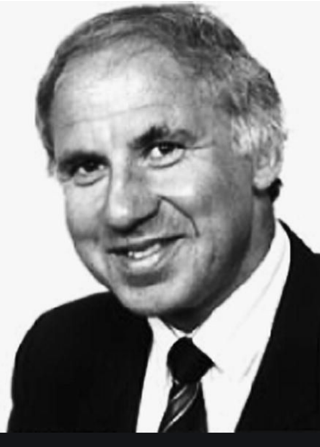
George Fink
show more
Professor George Fink is a neuroendocrinologist and neuropharmacologist. He is Professorial Research Fellow at the Florey Institute for Neuroscience and Mental Health, Melbourne University at which he is also an Honorary Professor. He is renowned for his research in reproductive neuroendocrinology, the neuroendocrine control of stress, positive and negative hormonal feedback control in neuroendocrine loops, and the effect of sex hormones on central neurotransmission. Fink´s seminal contributions to the field of reproductive neuroendocrinology are numerous, and include the classic demonstration that Gn-RH pulsatile secretion sets the conditions for the LH surge in ovulation. Among numerous honors Prof. Fink has received throughout his career is his Inaugural Geoffrey Harris Memorial Prize Lecture of the British Physiological Society (Cambridge, 1987) in recognition that Harris and Fink performed one of the fundamental experiments giving birth to the field of neuroendocrinology.
show less
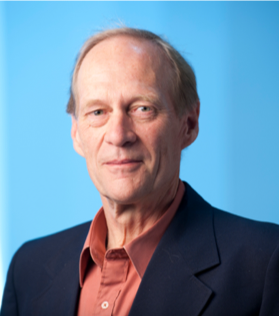
John Furness
show more
Professor John Furness is Laboratory Director at Melbourne University and heads the Digestive Physiology and Nutrition Laboratory at the Florey Institute.Dr. Furness is best-known for his elegant characterization of the chemoanatomy of the enteric nervous system, with his colleague Dr. Costa, both with respect to its classical neurotransmitter and neuropeptide components, and how these mediate the complex motor programs that allow gut function. More recently, Dr. Furness has been engaged in inquiry into the physiological consequences of ghrelin engagement with both canonical and non-canonical receptors, and the properties of ghrelin receptors in primates compared to other mammals.
show less
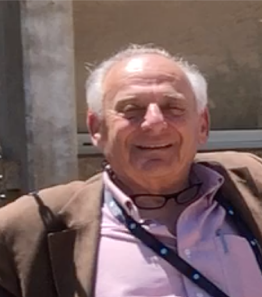
Harold Gainer
1935 - 2023.11.9
show more
Dr. Harold (Hal) Gainer obtained his B.S. in Chemistry from the City College of New York, and his Ph.D. in Physiology and Biochemistry from the University of California, Berkeley. After a brief period as a Postdoctoral Fellow at Berkeley and as an Instructor in Physiology at UCSF, Dr. Gainer did further postdoctoral work on the electrophysiology of muscle and synapses at Columbia University College of Physicians and Surgeons in New York in the laboratory of Harry Grundfest. Dr. Gainer moved to a faculty position at the University of Maryland where his research focused on mechanisms of sound production in marine animals and on the role of calcium in excitation-contraction coupling. He was an adjunct/visiting professor at the University of Maryland, George Washington University and Tel-Aviv University, Israel, and a summer investigator at the Marine Biological Laboratory, Woods Hole. In 1969, Dr. Gainer joined the NIH, National Institute of Neurological Diseases and Stroke (NICHD) as a Research Physiologist, and later became Chief of the Laboratory of Neurochemistry and Immunology in NICHD. In 1987 he moved to the NINDS to become Chief of the Laboratory of Neurochemistry, and also served as Basic Neuroscience Director from 1990-2000, and as Acting Scientific Director from 1994-1995 in the intramural NINDS, NIH. Dr. Gainer’s laboratory studied the cell and molecular biology of oxytocin and vasopressin peptidergic neurons in the mammalian hypothalamus. Dr. Gainer retired in 2012, and is presently a Scientist Emeritus in NINDS, NIH. Dr. Gainer’s research expertise is in the mechanisms that are involved in the establishment and maintenance of specific peptidergic neuronal phenotypes in the central nervous system. He studied the cell biological and molecular processes that underlie cell-specific expression of oxytocin and vasopressin genes, and the biosynthesis, sorting, packaging and neurosecretion of the resulting neuropeptides in the hypothalamus. In order to examine these issues he focused on two neural systems in the CNS: 1) the magnocellular neurons of the mammalian hypothalamo- neurohypophysial system, which secrete the nonapeptides, oxytocin and vasopressin into the general circulation, and 2) and neurons in the suprachiasmatic nucleus which secrete vasopressin in a circadian fashion into specific hypothalamic sites.
show less
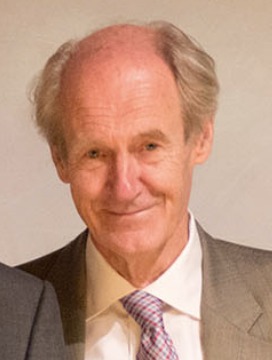
Tomas Hökfelt
show more
Tomas Hökfelt is a professor in the Department of Neuroscience at the Karolinska Institute, Stockholm, Sweden. Professor Hökfelt is one the fathers of the field of neuropeptide research. His research focuses on the localization and function of neuropeptides in the healthy and diseased brain. Dr. Tomas Hokfelt describes his laboratory’s research as ‘focused on chemical messengers in the nervous and endocrine systems, mainly based on histochemical techniques’. This low-key description captures a lifetime of regulatory peptide research that includes driving the entire neuropeptide field by exhaustive demonstration of peptide/classical transmitter co-existence, the implications of which are still being worked out; physiological functions of distinct neuropeptides in autotony, pain, stress, cognition and other physiological functions; and localization of neuropeptides to established and novel brain and endocrine circuits leading to uncovering of their functions. Dr. Hokfelt has received much recognition and many honors for his research: these include induction into the National Academy of Sciences USA at the age of 44; doctorates honoris causa at universities throughout the world; the Erasmus Medal (in 2011); and many others. Transcending all of these accolades is the recognition of his scientific peers that, in identifying neuropeptides as the molecular engineers of adaptation to paraphysiological stressors, Dr. Hokfelt defined the potential and the mission of the regulatory peptide field decades ago, and for decades to come. The IRPS is honored to include Dr. Hokfelt as a Distinguished Member.
show less

Jens Holst
show more
Jens Juul Holst is a Professor in the Faculty of Health and Medical Sciences of the University of Copenhagen. In 1986 Professor Jens Juul Holst discovered the GLP-1 hormone in connection with his work on stomach ulcer surgery. Since the discovery, Novo Nordisk have used the research to successfully develop products to treat diabetes and obesity. The hormone GLP-1 can be used to regulate blood sugar levels and satiety. Not only has it made treatment of obesity and diabetes possible, it has also proven useful preventatively through early diagnosis for citizens who are at risk of developing diabetes and obesity. Since the discovery of the GLP-1 hormone, Novo Nordisk have utilized the knowledge to develop the diabetes drug, Victoza and the obesity drug, Saxenda, which are two of the most important preparations for the treatment of these two lifestyle diseases. In 2015, Jens Juul Holst received the prestigious international Fernström prize for his research on GLP-1. He is one of the most cited researchers in Europe, with over 1,200 published articles and citations in over 3,500 articles annually.
show less

Luis de Lecea
show more
Luis de Lecea is a Professor in the Department of Psychiatry and Behavioral Sciences at Stanford University School of Medicine. Prof. de Lecea trained in Barcelona, Brussels and San Diego before starting his laboratory at The Scripps Research Institute in 1996, where he discovered two neurotransmitters critical for the regulation of sleep and wakefulness. He joined Stanford in 2006 and his work now focuses on the role of neuromodulators in mammalian behavior, especially behaviors related to sleep, reward, stress, and learning and memory. He is associated with the reproductive health company, Ardana Biosciences which raised 73 million pounds, was listed on the LSE, and took three drugs into the market. He has an H-index of 70, published >400 papers which received >20,000 citations, and filed 18 patents.
show less

Gareth Leng
show more
Gareth Leng is Professor of Experimental Physiology, University of Edinburgh. Professor Leng is a leading expert in neuroendocrinology, with over 250 published papers, covering diverse aspects of the regulation of vasopressin, oxytocin, growth hormone and appetite regulation. He is a former Editor-in-Chief of the ‘Journal of Neuroendocrinolgoy’, and between 2012 to 2016 was President of the International Neuroendocrine Federation. Although first trained as a mathematician, he is best known for his experimental studies on neuroendocrine systems, but his recent work has increasingly involved computational modelling. He has a strong active commitment to the public understanding of science. Dr. Leng has over many years devised rigorous and imaginative experiments aimed at a fundamental understanding of how homeostatic demands are translated into changes in neurosecretory cell electrical activity leading to secretion.
show less
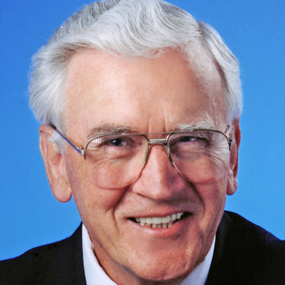
Maurice Manning
show more
Professor Maurice Manning is a Distinguished University Professor in the Department of Cancer Biology, The University of Toledo College of Medicine and Life Sciences. Dr. Manning´s contributions to the field of peptide research through the design and synthesis of both agonist and antagonist analogs, including ´the Manning compound´ have been amplified over the years by his generosity in sharing these important reagents for revealing peptide actions at brain as well as peripherally.
show less
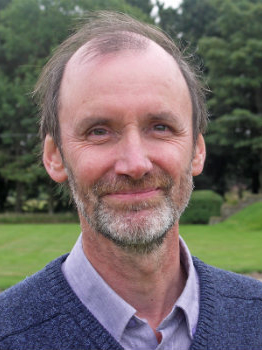
Julian Mercer
show more
show less
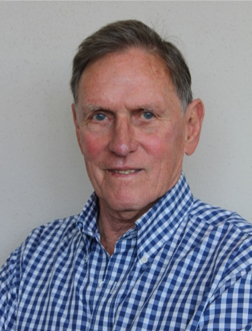
Robert Millar
show more
show less
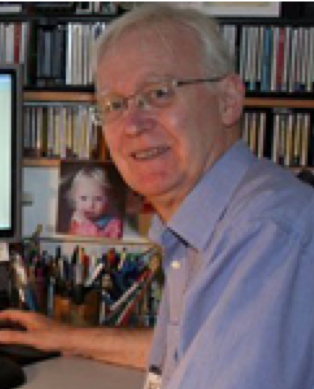
John Morris
show more
Professor John Morris has worked in what is now the Department of Physiology, Anatomy & Genetics (DPAG) since 1977, teaching medical and science students at St Hugh’s and other colleges. From 2004-2010 he was director of Preclinical Studies and since becoming emeritus in 2010 he continues to be engaged in research with the DPAG and in undergraduate teaching. John is currently Emeritus Fellow of St Hugh’s College, and previously Wellcome-Franks Fellow in Medicine. He is the recipient of a Lifetime Achievement Award for Teaching Excellence by the Medical Sciences Division, an award that acknowledges recipients for high quality and sustained commitment to education demonstrated throughout their career at Oxford.
show less
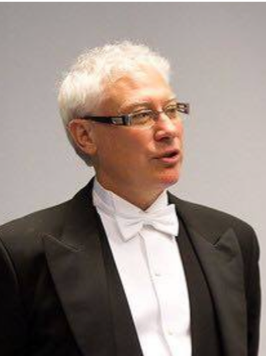
Quentin Pittman
show more
Professor Quentin Pittman obtained his BA at the University of Lethbridge and Ph.D. (Medical Science) at the University of Calgary. This was followed by a Medical Research Council postdoctoral fellowship at McGill where he studied hypothalamic neurophysiology and a MRC Centennial Fellowship at the Behavioral Neurobiology laboratories at the Salk Institute where he worked on peptide neurotransmitters. In 1980, he returned to Calgary as an MRC Scholar in the Department of Pharmacology and Therapeutics (now Physiology and Pharmacology), achieving full professorship in 1988. During his entire academic career, he has been continuously supported by competitive salary awards from the MRC or the Alberta Heritage Foundation for Medical Research (AHFMR). He is currently a Medical Scientist of the AHFMR and Fellow of the Royal Society of Canada. At the University of Calgary, Dr. Pittman has been Chairman of the Neuroscience Research Group, Assistant Dean (Medical Science) and Education Director of the Hotchkiss Brain Institute. He has been active in review bodies for many scientific agencies, including the MRC, CIHR, Heart and Stroke Foundation of Canada, Human Science Frontiers Program and the NIH. He is on editorial boards of several scientific journals including J Neuroendocrinol, J Physiol, American J Physiol-Reg, Integ Comp Physiol and is currently assoc editor for Frontiers in Neuroendocrine Sciences, eNeuro, Temperature and Brain Behavior & Immunity. He has been President of the Canadian Physiological Society, Councilor of the Canadian Association for Neuroscience, the International Neuroendocrine Federation and the International Union of Physiological Sciences and Treasurer of the International Brain Research Organization (IBRO). Dr. Pittman has trained many scientists who have gone onto successful academic and industrial careers. Dr. Pittman has published nearly 300 peer-reviewed and invited articles and frequently speaks on his work that extends from cellular studies on peptide and other transmitters in brain slices to whole animal studies on the effects of early or chronic inflammation on the brain and its outputs.
show less
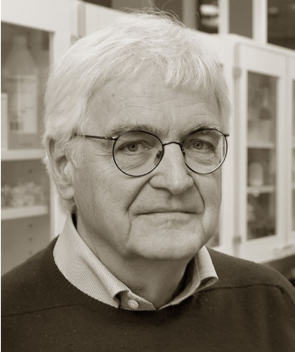
Jens Rehfeld
Recognized for exploration of peptide and peptide receptor co-evolution, providing insights into the evolutionary basis for ligand specificity and receptor specialization to physiological purpose.
show more
Jens Rehfeld
is a Professor in the Department of Clinical Medicine, University of Copenhagen. Dr. Rehfeld´s elucidation of the brain distribution and post-translational modifications of cholecystokinin has been fundamental for understanding the actions of this important peptide, and related neuropeptides, in central and peripheral nervous and endocrine systems.
show less
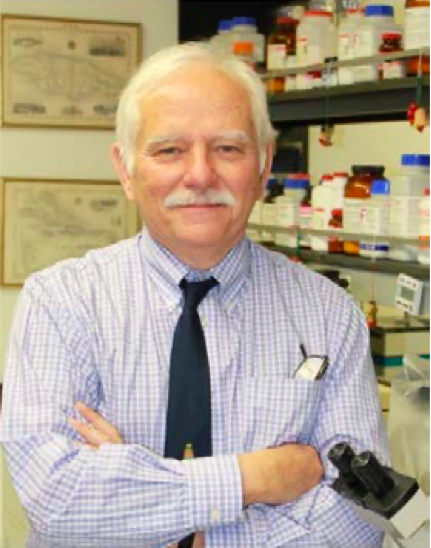
Rick Samson
Recognized for innovative approaches to peptide receptor deorphanization and understanding of peptide receptor participation in physiological regulation.
show more
Willis K. “Rick” Samson is professor of pharmacology and physiology and director of biomedical science graduate programs in the School of Medicine at Saint Louis University (SLU). He earned his bachelor’s degree in chemistry from Duke University in Durham, North Carolina; his PhD from the University of Texas Health Science Center at Dallas; and his DSc from Westminster College in Fulton, Missouri. Samson is the vice chair of the SLU School of Medicine’s Pharmacology and Physiology Department and a member of SLU’s COVID-19 Task Force. He serves on editorial boards for a number of scientific organizations and journals. He will serve as President-Elect of the American Physiological Society until April 2023.
show less
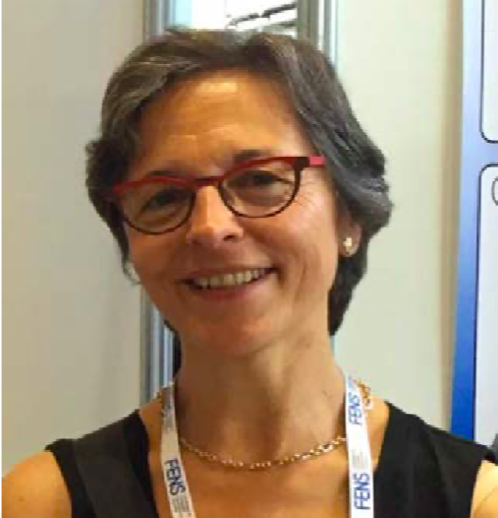
Carmen Sandi
show more
Professor Carmen Sandi works at the Swiss Federal Institute of Technology Lausanne (EPFL), where she leads the Laboratory of Behavioral Genetics at the Brain Mind Institute for which she was the Director from 2012-2018. She is also co-Director of the Swiss National Center of Competence in Research Synapsy and founder and co-President of the Swiss Stress Network. She is the past president of the Federation of European Neuroscience Societies (FENS).
show less
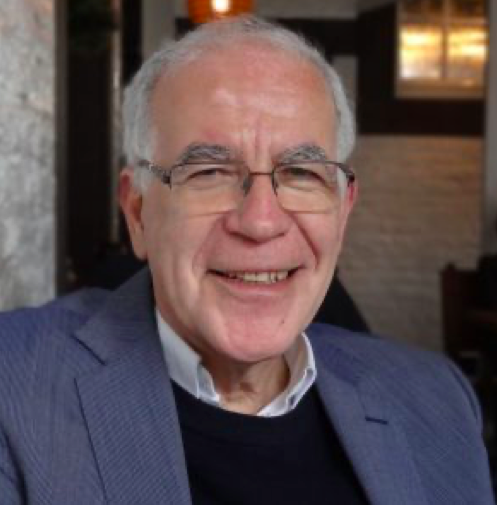
Dick Swaab
show more
Professor Dick ‘Ferdinand’ Swaab (Amsterdam, December 17, 1944) is emeritus professor of neurobiology at the University of Amsterdam and until 2005 was director of the Netherlands Institute for Brain Research of the Royal Netherlands Academy of Arts and Sciences. Professor Swaab leads a research group at the Netherlands Brain Institute in Amsterdam and is a professor at Zhejiang University in Hangzhou, People’s Republic of China.
show less